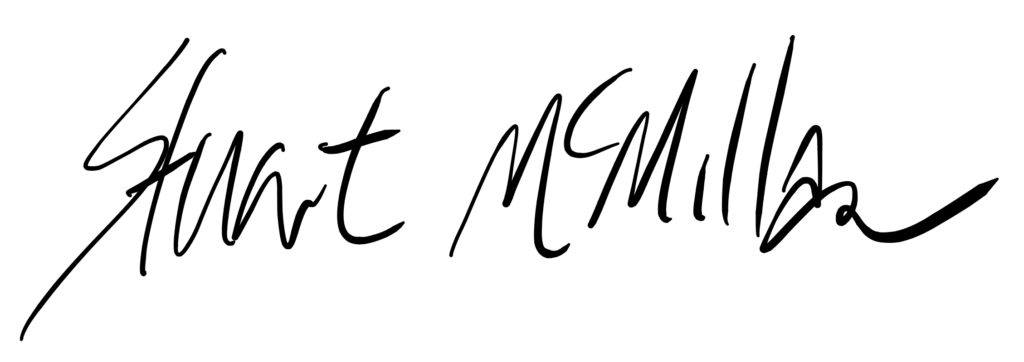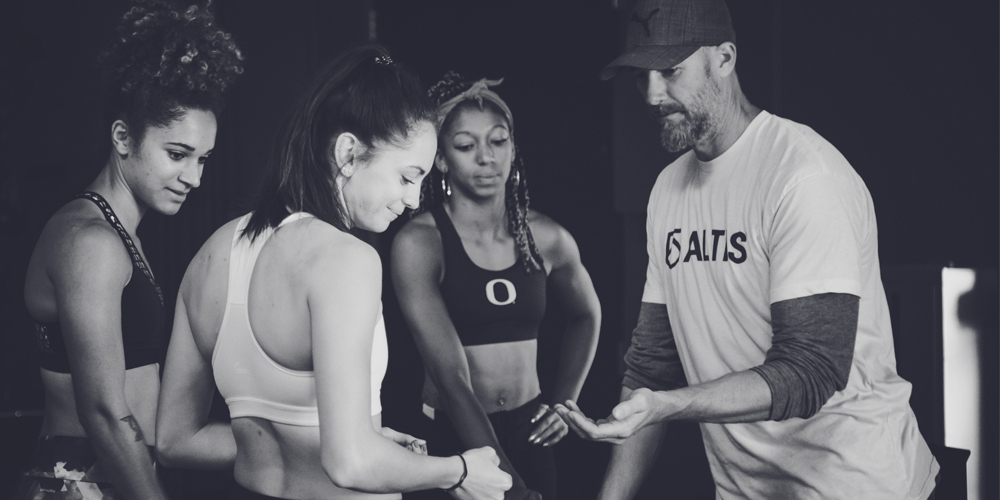We are happy to present the fourth installment of ALTIS Performance Director and Sprint Coach Stuart McMillan’s ‘Best of’ Books.
“Some books are to be tasted, others to be swallowed, and some few to be chewed and digested.” – Francis Bacon
Following along with Sir Bacon’s quote above, and using Mortimer Adler’s guidelines on ‘how to read a book’ as a starting point, I will this year present my recommended books slightly differently. Some I recommend you ‘just browse’; others you spend considerable time with, and return to again and again, and others somewhere in the middle on this continuum.
First – a brief background on Adler’s ‘rules’ – his levels of reading:
He identifies four cumulative levels of reading – each successive level requiring a firm understanding of the previous one. Depending upon your objective, he opines that we will read a book very differently. For example, we will read a trash novel very differently than we will a scientific text. It seems obvious that we have a different strategy to how we go about interacting with the book based on these objectives.
The Four Levels:
1. Elementary Reading
We could just as easily call this basic reading. It involves simply learning how to read – moving from nonliterary to literacy.
2. Inspectional Reading
Another way of looking at this is skimming, or browsing the book. This does not presuppose that this is a random exercise, however. There is a set structure to this type of reading, with the objective of understanding what the book is about, what are its parts, and what the reader can expect to gain from it. Inspectional reading is an important step in the reading process; a step that Adler says is necessary before moving forward with more depth. A reader who reads from page 1 through to the end, while skipping the inspectional step is facing “the task of achieving a superficial knowledge of the book at the same time that they are trying to understand it.”, writes Adler.
We should not feel guilty if our reading experience ends with this step – far too much time has been wasted on books that we feel we have to finish just because we started them, or have spent the money to buy them. If we can gain the required insight-information from an inspectional read, and save time for more in-depth reads of books we are more interested in, then where is the downside?
3. Analytical Reading
This is thorough reading – involving deep analysis from the reader. It requires us to really pay attention, and to understand the details around the thesis. This is how most students read textbooks, for example.
4. Synoptical Reading
This involves reading deeply on a topic – and developing the ability to compare books to each other, making informed analyses of each, and how they stand in the greater world of knowledge dissemination.
If analytical reading is the analysis, then synoptical reading is the synthesis.
Before going forward, whenever I hear that folks ‘just don’t have the time to read’ it gets me angry. You say you don’t have time to read? Bollocks … you do! You just choose not to make reading a priority. Reading is ESSENTIAL. It is our primary way of understanding the world we live in. It is the primary way in which we educate ourselves. Our schooling gives us the outline – it is READING that then fills in the details.
Just read.
Without further ado, I give you my Best of 2016. As always, these books were not necessarily written in 2016; this was just the year I happened to read them.
First – an aside: I don’t read coaching books anymore – but all books I read are about coaching. If you’re a coach over a certain age, you will know what I mean by that.
INSPECTIONAL
Some of the following books I have browsed intentionally – and will take no further (Fields and Mason, for instance – where I found I got the point very quickly – both would have been better served as blog-posts), while a couple others I will delve into further (Klinkenborg, Imai, and Ferriss). Like his previous work, you can pick and choose from Ferriss’ book. Although I think he is a pretty terrible interviewer, his podcast has had some excellent guests, and I listen to it often; Tools of Titans is a ‘best of’, with take-homes. Some are interesting. Some are not. Like I said – pick and choose, and take what you want. The same can be said for all of these:
Tools of Titans – Tim Ferriss
How to Live a Good Life – Jonathan Fields
The Subtle Art of Not giving a F*ck – Mark Mason
How to Fail at almost Everything, and Still Win Big – Scott Adams
Several Short Sentences about Writing – Verlyn Klinkenborg
Gemma Kaizen – Masaaki Imai
Sleep – Nick Littlehale
ANALYTICAL
These books were read cover to cover, and many will be returned to again. In fact, I have already returned to Deutsch’s and Alinsky’s books, and I know that The Neo-Generalist will be a favorite for a long-time. Some of these were just fun reads, and will never be picked up again (which is fine); for example, Strauss, Itzler, and Harris. It’s Your Ship is horribly written, and the author is super-annoying – but there are some decent take-homes
Feynman and Pressfield are two of my favorite writers (I know Feynman is not a writer – but his books are just awesome!). Feynman’s The Meaning of it All is probably my least favorite of his books I have read – so I definitely would not start here, unless you have read all his others. Pressfield is just amazing.
Two of my favorite reads of the year are quite similar: The World Beyond Your Head and Deep Work. Crawford’s book, in particular, was excellent. Those two – plus Dave Gray’s Liminal Thinking are probably my top three for 2016.
I’d recommend full reads of all the following (the level of analysis of which will be decided by the reader):
The Beginning of Infinity – David Deutsch
The Neo-Generalist – Mikkelson & Martin
The Meaning of it All – Richard Feynman
Liminal Thinking – Dave Gray
Extreme Ownership – Jocko Willink
It’s Your Ship – Michael Abras
The Truth – Neil Strauss
Managing Oneself – Drucker
Ego is the Enemy – Ryan Holiday
The Warrior Ethos – Steven Pressfield
The Lessons of History – Will & Ariel Durant
Geography of Genius – Eric Weiner
Living with a SEAL – Jesse Itzler
10% Happier – Dan Harris
Rules for Radicals – Saul Alinsky
The World Beyond Your Head – Matthew Crawford
Deep Work – Cal Newport
SYNOPTICAL
The following are books that never leave my ‘playlist’, and continue to drive how I relate to all other books. I return to them over and over again – all for different reasons, but I find myself reading at least a few pages of all of these each week. They’re all awesome, and everyone should read them!
The Hedgehog & The Fox – Isiah Berlin
Every Time I Find the Meaning of Life, They Change it – Daniel Klein
Rework – Jason Fried & David Hansson
The Wisdom of Insecurity – Alan Watts
The Pleasure of Finding Things Out – Richard Feynman
What Do You Care What Other People Think – Richard Feynman
Meditations – Marcus Aurelius
2017 and onwards …
It’s not just about reading. That helps. But reading is not a passive activity.
We can’t just read things once, and assume the information magically, unconsciously forms connections with whatever is already swimming around in our brain (although sometimes that is exactly what happens).
We need to be critical and always thinking.
We need to “have the temperament to grab ideas and do sensible things. Most people don’t grab the right ideas or don’t know what to do with them” (Charlie Munger)
We need to understand what we read well enough to communicate it to others.
I will do very little reading in 2017. Instead, I will be RE-reading.
“It would be a good thing to buy books if one could also buy the time to read them; but one usually confuses the purchase of books with the acquisition of their contents. To desire that a man should retain everything he has ever read, is the same as wishing him to retain in his stomach all that he has ever eaten. He has been bodily nourished on what he has eaten, and mentally on what he has read, and through them become what he is. As the body assimilates what is homogeneous to it, so will a man retain what interests him; in other words, what coincides with his system of thought or suits his ends. Every one has aims, but very few have anything approaching a system of thought. This is why such people do not take an objective interest in anything, and why they learn nothing from what they read: they remember nothing about it.” – Schopenhauer
2017 SYNOPTICAL (re-reads)
These are books I have read in the past, have enjoyed greatly, and need to spend more time with. If you’re looking for a big read, I highly recommend Edmund Morris’ three-part biography of Theodore Roosevelt (I recommended this a couple years ago also).
I really enjoy Russian literature – and find myself increasingly interested in Russian and Soviet history. It goes without saying that some of the greatest books ever written are by Russian writers. Crime and Punishment is a long read, but like most of Dostoevsky’s books, is well worth the time and effort.
One I haven’t read in a while is former Black Panther Party Minister of Information Eldridge Cleaver’s Soul on Ice. I first got interested in reading heavily in the late 80s through a fascination with the Civil Rights Movement. I read pretty much everything I could get my hands on that had anything to do with African American culture through the 60s and 70s, and there were a ton of great writers producing all manner of fascinating work in this incredibly interesting and important period in history – including Richard Wright, James Baldwin, Leroi Jones (Amiri Baraka), George Jackson, Ralph Ellison, Angela Davis, and Nikki Giovanni. I include reference here for I think a lot of this work – although it’s always been important, perhaps has more relevance in our current political culture than at any point since the 70s. Evolution, revolution, humanism, globalization, racism, sexism … all increasingly coming to the fore once again.
Victor Frankl’s Man’s Search For Meaning just needs to be read by every human on the planet. Full stop.
Crime and Punishment – Fyodor Dostoevsky
Man’s Search for Meaning – Victor Frankl
Colonel Roosevelt – Edmund Morris
Soul on Ice – Eldridge Cleaver
The Beginning of Infinity – David Deutsch
2017 NEW READS
Some that are already out, or will be released in 2017 that I have pre-bought, or are on my on-deck circle that I will get to next year include the following.
I am particularly looking forward to reading de Mello’s The Way to Love and Kasparov’s Winter is Coming.
Resilience: Hard-won Wisdom for a Better Life – Eric Grietens
The Way to Love: the last Meditations of Anthony de Mello – Anthony de Mello
The Road to Character – David Brooks
Anything you Want – Derek Sivers
South and West – Joan Didion
Three-fifths a Man – Jacobson & Colón
Winter is Coming – Gary Kasparov
Presence – Amy Cuddy
What about my 2015 ‘Best of 2016’ you ask?
*A year ago, I offered what would be the books I would spend time with in 2016. Here are my brief thoughts:
The Book of Life: Daily Meditations with Krishnamurti: J Krishnamurti. Fully read (analytical) – short, daily, ‘meditations’. Nothing earth-shattering, but nice daily reminders of the things that matter.
An American Jew: Steven Pressfield. Inspectional, and 3/4 read. I love Pressfield – but this just is not that interesting to me. I doubt I will return to it, to be honest.
Perpetual War for Perpetual Peace: Gore Vidal. Haven’t started yet
The Anatomy of Melancholy: Robert Burton. A big book. This may take me a few more years. Have started the inspectional process.
Strength Training and Coordination: An Integrated Approach: Frans Bosch. I have reviewed this book previously. If you’re a coach, buy it. It is important work.
Biomechanics and Motor Control: Latash and Zatsiorsky. A classic text that all coaches should have in their library.
The Score Takes Care of Itself: Bill Walsh. Haven’t started it yet.
Captivology: The Science of Capturing People’s Attention: Benn Parr. Bought on recommendation of Brett Bartholomew, I have yet to begin it. Brett really likes it, and Brett’s a smart dude, who likes good books – so I will get to it!
The Art of Scientific Investigation: William Ian Beardmore Beverage. I have begun the inspectional process.
The Beginning of Infinity: David Deutsch. Awesome. Listen to his two conversations with Sam Harris, or his TED Talks if you are intimidated by his book (although it is VERY readable).
Killing Floor: Lee Child. This was a bit of a problem. My mother gave me this book last Christmas. I have now read all 19 of Child’s books. A very enjoyable series, Lee Child writes books that are the definition of ‘page turners’. I actually really enjoyed these books, and need to work on not feeling guilty about that!
PODCASTS
Many of us spend more time now listening to podcasts than we do reading (for me it’s probably 50-50). In my opinion, this is a totally legitimate form of continued education (and occasional entertainment). There are some great podcasts out there. The following are the ones that are always on my docket:
Undone: a new Gimlet Media one – exploring old stories that have more significance than originally thought. Listen to The Deacons first.
Hidden Brain: a ‘sciency’ show that explores how we make decisions, and what drives our behavior. Listen to Broken Windows first.
The Rich Roll Podcast: An awesome podcast, hosted by an excellent interviewer-conversationalist. Listen to Coach George Graveling … first. (honestly – this conversation is very very good!)
TED Radio Hour: An hour built around a particular TED Talk – this podcast is well produced, and normally excellent. Listen to Why We Collaborate first.
Dan Carlin’s Hardcore History: the best podcast ever. Listen to the six-part Blueprint for Armageddon first. Before anything else!
Common Sense with Dan Carlin: the only political podcast I listen to. I really like Dan Carlin – a rare reasonable commentator. Listen to his awesome conversation with James Burke first.
Waking Up with Sam Harris: speaking of reasonable – is there anyone more reasonable than Sam Harris? Almost every podcast is excellent – his recent conversations with Richard Dawkins and David Deutsch personal highlights for me. His most recent is a conversation with Russian chess master Gary Kasparov. Fascinating stuff.
Radiolab: perhaps a little over-produced, but generally excellent. The recent Bringing Gamma Back is really cool – details recent work on using various frequency of light to understand how Alzheimers can potentially be cured.
This American Life: again – sometimes a little over-produced for my tastes, but when it is a topic you are interested in, it’s very good. Listen to Seriously? first.
OK – that’s it! If you have any thoughts, I’d love to hear them. Head over to my Twitter (@stuartmcmillan1) or Instagram (@Fingermash) page and let me know what you think. Alternatively, head on over to the ALTIS Agora Facebook group, and let’s chat about the list there! (you have to be an ALTIS 360 member to join the group – so GET ON IT!). Just please do not recommend any more books to me – my bank account just can’t handle it anymore!
In closing – it really doesn’t matter what you read … just read! If this list helps you choose some good books, then great! If not, and you’re reading anyway – that’s great too!


